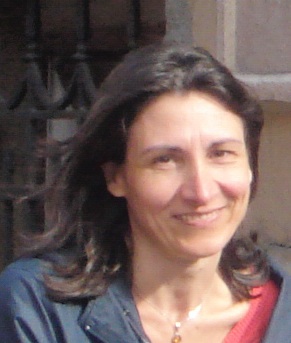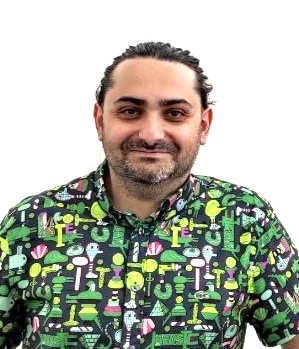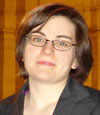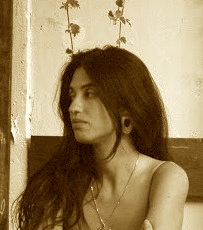Studying at the University of Verona
Here you can find information on the organisational aspects of the Programme, lecture timetables, learning activities and useful contact details for your time at the University, from enrolment to graduation.
Academic calendar
The academic calendar shows the deadlines and scheduled events that are relevant to students, teaching and technical-administrative staff of the University. Public holidays and University closures are also indicated. The academic year normally begins on 1 October each year and ends on 30 September of the following year.
Course calendar
The Academic Calendar sets out the degree programme lecture and exam timetables, as well as the relevant university closure dates..
| Period | From | To |
|---|---|---|
| Semester 1 | Oct 2, 2023 | Jan 26, 2024 |
| Semester 2 | Mar 4, 2024 | Jun 14, 2024 |
| Session | From | To |
|---|---|---|
| Winter exam session | Jan 29, 2024 | Mar 1, 2024 |
| Summer exam session | Jun 17, 2024 | Jul 31, 2024 |
| Autumn exam session | Sep 2, 2024 | Sep 30, 2024 |
| Session | From | To |
|---|---|---|
| Summer graduation session | Jul 17, 2024 | Jul 17, 2024 |
| Autumn graduation session | Oct 18, 2024 | Oct 18, 2024 |
| December graduation session | Dec 10, 2024 | Dec 10, 2024 |
| Winter graduation session | Mar 18, 2025 | Mar 18, 2025 |
| Period | From | To |
|---|---|---|
| Festa di Ognissanti | Nov 1, 2023 | Nov 1, 2023 |
| Festa dell'Immacolata | Dec 8, 2023 | Dec 8, 2023 |
| Vacanze di Natale | Dec 24, 2023 | Jan 7, 2024 |
| Festività pasquali | Mar 29, 2024 | Apr 1, 2024 |
| Ponte della Festa della Liberazione | Apr 25, 2024 | Apr 26, 2024 |
| Festa del Lavoro | May 1, 2024 | May 1, 2024 |
| Festività del Santo Patrono: San Zeno | May 21, 2024 | May 21, 2024 |
| Festa della Repubblica | Jun 2, 2024 | Jun 2, 2024 |
| Vacanze estive | Aug 12, 2024 | Aug 17, 2024 |
Exam calendar
Exam dates and rounds are managed by the relevant Science and Engineering Teaching and Student Services Unit.
To view all the exam sessions available, please use the Exam dashboard on ESSE3.
If you forgot your login details or have problems logging in, please contact the relevant IT HelpDesk, or check the login details recovery web page.
Should you have any doubts or questions, please check the Enrollment FAQs
Academic staff
 elisa.artegiani@univr.it
elisa.artegiani@univr.it
 alberto.burato@univr.it
alberto.burato@univr.it
 matteo.calgaro_01@univr.it
matteo.calgaro_01@univr.it
 vittoria.cozza@univr.it
vittoria.cozza@univr.it
 mila.dallapreda@univr.it
mila.dallapreda@univr.it
 nicola.dallora@univr.it
nicola.dallora@univr.it
 rosanna.laking@univr.it
rosanna.laking@univr.it
 claudio.tomazzoli@univr.it
claudio.tomazzoli@univr.it
 franco.zivcovich@univr.it
franco.zivcovich@univr.it
Study Plan
The Study Plan includes all modules, teaching and learning activities that each student will need to undertake during their time at the University.
Please select your Study Plan based on your enrollment year.
1° Year
| Modules | Credits | TAF | SSD |
|---|
Mathematical analysis 1
Computer Architecture
2° Year It will be activated in the A.Y. 2024/2025
| Modules | Credits | TAF | SSD |
|---|
Mathematical analysis 2
3° Year It will be activated in the A.Y. 2025/2026
| Modules | Credits | TAF | SSD |
|---|
1 module among the following| Modules | Credits | TAF | SSD |
|---|
Mathematical analysis 1
Computer Architecture
| Modules | Credits | TAF | SSD |
|---|
Mathematical analysis 2
| Modules | Credits | TAF | SSD |
|---|
1 module among the following| Modules | Credits | TAF | SSD |
|---|
Legend | Type of training activity (TTA)
TAF (Type of Educational Activity) All courses and activities are classified into different types of educational activities, indicated by a letter.
Control theory (It will be activated in the A.Y. 2025/2026)
Teaching code
4S008200
Credits
6
Scientific Disciplinary Sector (SSD)
ING-INF/04 - AUTOMATICA
Learning objectives
The course aims to provide the mathematical tools needed to model, analyze and control a dynamic system in the time and frequency domain. At the end of the course the student will have the following knowledge and skills: Ability to analyze the properties of a dynamic system in the time and frequency domain; Ability to study the stability, robustness, and performance of a feedback system; Ability to design a control system starting from performance and robust stability requirements; Ability to evalu- ate the feasibility of a control system and choose the most appropriate design method. The student should also be able to work with other engineers (e.g. electronic, control, mechanical engineers) to design advanced control architectures, and to increase autonomously his/her knowledge in the con- text of control systems.
Educational offer 2023/2024
You can see the information sheet of this course delivered in a past academic year by clicking on one of the links below:
Type D and Type F activities
Le attività formative di tipologia D sono a scelta dello studente, quelle di tipologia F sono ulteriori conoscenze utili all’inserimento nel mondo del lavoro (tirocini, competenze trasversali, project works, ecc.). In base al Regolamento Didattico del Corso, alcune attività possono essere scelte e inserite autonomamente a libretto, altre devono essere approvate da apposita commissione per verificarne la coerenza con il piano di studio. Le attività formative di tipologia D o F possono essere ricoperte dalle seguenti attività.
1. Insegnamenti impartiti presso l'Università di Verona
Comprendono gli insegnamenti sotto riportati e/o nel Catalogo degli insegnamenti (che può essere filtrato anche per lingua di erogazione tramite la Ricerca avanzata).
Modalità di inserimento a libretto: se l'insegnamento è compreso tra quelli sottoelencati, lo studente può inserirlo autonomamente durante il periodo in cui il piano di studi è aperto; in caso contrario, lo studente deve fare richiesta alla Segreteria, inviando a carriere.scienze@ateneo.univr.it il modulo nel periodo indicato.
2. Attestato o equipollenza linguistica CLA
Oltre a quelle richieste dal piano di studi, per gli immatricolati dall'A.A. 2021/2022 vengono riconosciute:
- Lingua inglese: vengono riconosciuti 3 CFU per ogni livello di competenza superiore a quello richiesto dal corso di studio (se non già riconosciuto nel ciclo di studi precedente).
- Altre lingue e italiano per stranieri: vengono riconosciuti 3 CFU per ogni livello di competenza a partire da A2 (se non già riconosciuto nel ciclo di studi precedente).
Tali cfu saranno riconosciuti, fino ad un massimo di 6 cfu complessivi, di tipologia F se il piano didattico lo consente, oppure di tipologia D. Ulteriori crediti a scelta per conoscenze linguistiche potranno essere riconosciuti solo se coerenti con il progetto formativo dello studente e se adeguatamente motivati.
Gli immatricolati fino all'A.A. 2020/2021 devono consultare le informazioni che si trovano qui.
Modalità di inserimento a libretto: richiedere l’attestato o l'equipollenza al CLA e inviarlo alla Segreteria Studenti - Carriere per l’inserimento dell’esame in carriera, tramite mail: carriere.scienze@ateneo.univr.it
3. Competenze trasversali
Scopri i percorsi formativi promossi dal TALC - Teaching and learning center dell'Ateneo, destinati agli studenti regolarmente iscritti all'anno accademico di erogazione del corso https://talc.univr.it/it/competenze-trasversali
Modalità di inserimento a libretto: non è previsto l'inserimento dell'insegnamento nel piano di studi. Solo in seguito all'ottenimento dell'Open Badge verranno automaticamente convalidati i CFU a libretto. La registrazione dei CFU in carriera non è istantanea, ma ci saranno da attendere dei tempi tecnici.
4. CONTAMINATION LAB
Il Contamination Lab Verona (CLab Verona) è un percorso esperienziale con moduli dedicati all'innovazione e alla cultura d'impresa che offre la possibilità di lavorare in team con studenti e studentesse di tutti i corsi di studio per risolvere sfide lanciate da aziende ed enti. Il percorso permette di ricevere 6 CFU in ambito D o F. Scopri le sfide: https://www.univr.it/clabverona
ATTENZIONE: Per essere ammessi a sostenere una qualsiasi attività didattica, incluse quelle a scelta, è necessario essere iscritti all'anno di corso in cui essa viene offerta. Si raccomanda, pertanto, ai laureandi delle sessioni di dicembre e aprile di NON svolgere attività extracurriculari del nuovo anno accademico, cui loro non risultano iscritti, essendo tali sessioni di laurea con validità riferita all'anno accademico precedente. Quindi, per attività svolte in un anno accademico cui non si è iscritti, non si potrà dar luogo a riconoscimento di CFU.
5. Periodo di stage/tirocinio
Oltre ai CFU previsti dal piano di studi (verificare attentamente quanto indicato sul Regolamento Didattico): qui informazioni su come attivare lo stage.
Verificare nel regolamento quali attività possono essere di tipologia D e quali di tipologia F.
Insegnamenti e altre attività che si possono inserire autonomamente a libretto
| years | Modules | TAF | Teacher |
|---|---|---|---|
| 2° 3° | Introduction to Docker | D |
Franco Fummi
(Coordinator)
|
| 2° 3° | Introduction to quantum mechanics for quantum computing | D |
Claudia Daffara
(Coordinator)
|
| 2° 3° | Introduction to smart contract programming for ethereum | D |
Sara Migliorini
(Coordinator)
|
| 2° 3° | Introduction to Robotics for students of scientific courses. | D |
Andrea Calanca
(Coordinator)
|
| 2° 3° | Web and mobile app design using react and react native | D |
Graziano Pravadelli
(Coordinator)
|
| 2° 3° | Rapid prototyping on Arduino | D |
Franco Fummi
(Coordinator)
|
| 2° 3° | Firmware development with bluetooth low energy (BLE) protocol and freertos operating system | D |
Franco Fummi
(Coordinator)
|
| years | Modules | TAF | Teacher |
|---|---|---|---|
| 2° 3° | Artificial intelligence | D |
Alessandro Farinelli
(Coordinator)
|
| 2° 3° | Introduction to Robotics for students of scientific courses. | D |
Andrea Calanca
(Coordinator)
|
| 2° 3° | LaTeX Language | D |
Enrico Gregorio
(Coordinator)
|
| 2° 3° | Python programming language | D |
Carlo Combi
(Coordinator)
|
| 2° 3° | HW components design on FPGA | D |
Franco Fummi
(Coordinator)
|
| 2° 3° | Programming Challanges | D |
Romeo Rizzi
(Coordinator)
|
| 2° 3° | Protection of intangible assets (SW and invention)between industrial law and copyright | D |
Mila Dalla Preda
(Coordinator)
|
| years | Modules | TAF | Teacher |
|---|---|---|---|
| 1° | Subject requirements: mathematics | D |
Franco Zivcovich
(Coordinator)
|
Career prospects
Module/Programme news
News for students
There you will find information, resources and services useful during your time at the University (Student’s exam record, your study plan on ESSE3, Distance Learning courses, university email account, office forms, administrative procedures, etc.). You can log into MyUnivr with your GIA login details: only in this way will you be able to receive notification of all the notices from your teachers and your secretariat via email and soon also via the Univr app.
Graduation
List of theses and work experience proposals
| theses proposals | Research area |
|---|---|
| Analisi e percezione dei segnali biometrici per l'interazione con robot | AI, Robotics & Automatic Control - AI, Robotics & Automatic Control |
| Integrazione del simulatore del robot Nao con Oculus Rift | AI, Robotics & Automatic Control - AI, Robotics & Automatic Control |
| Domain Adaptation | Computer Science and Informatics: Informatics and information systems, computer science, scientific computing, intelligent systems - Computer graphics, computer vision, multi media, computer games |
| Domain Adaptation | Computer Science and Informatics: Informatics and information systems, computer science, scientific computing, intelligent systems - Machine learning, statistical data processing and applications using signal processing (e.g. speech, image, video) |
| BS or MS theses in automated reasoning | Computing Methodologies - ARTIFICIAL INTELLIGENCE |
| Domain Adaptation | Computing Methodologies - IMAGE PROCESSING AND COMPUTER VISION |
| Domain Adaptation | Computing methodologies - Machine learning |
| Dati geografici | Information Systems - INFORMATION SYSTEMS APPLICATIONS |
| Analisi e percezione dei segnali biometrici per l'interazione con robot | Robotics - Robotics |
| Integrazione del simulatore del robot Nao con Oculus Rift | Robotics - Robotics |
| BS or MS theses in automated reasoning | Theory of computation - Logic |
| BS or MS theses in automated reasoning | Theory of computation - Semantics and reasoning |
| Proposte di tesi/collaborazione/stage in Intelligenza Artificiale Applicata | Various topics |
| Proposte di Tesi/Stage/Progetto nell'ambito dell'analisi dei dati | Various topics |
Attendance
As stated in the Teaching Regulations for the A.Y. 2022/2023, attendance at the course of study is not mandatory.

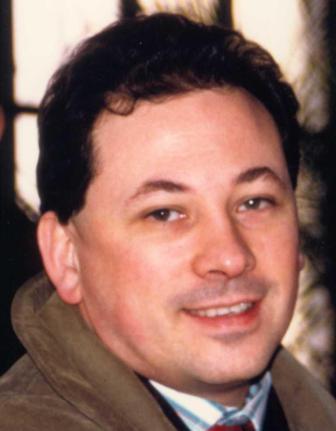
 +39 045 802 7980
+39 045 802 7980













